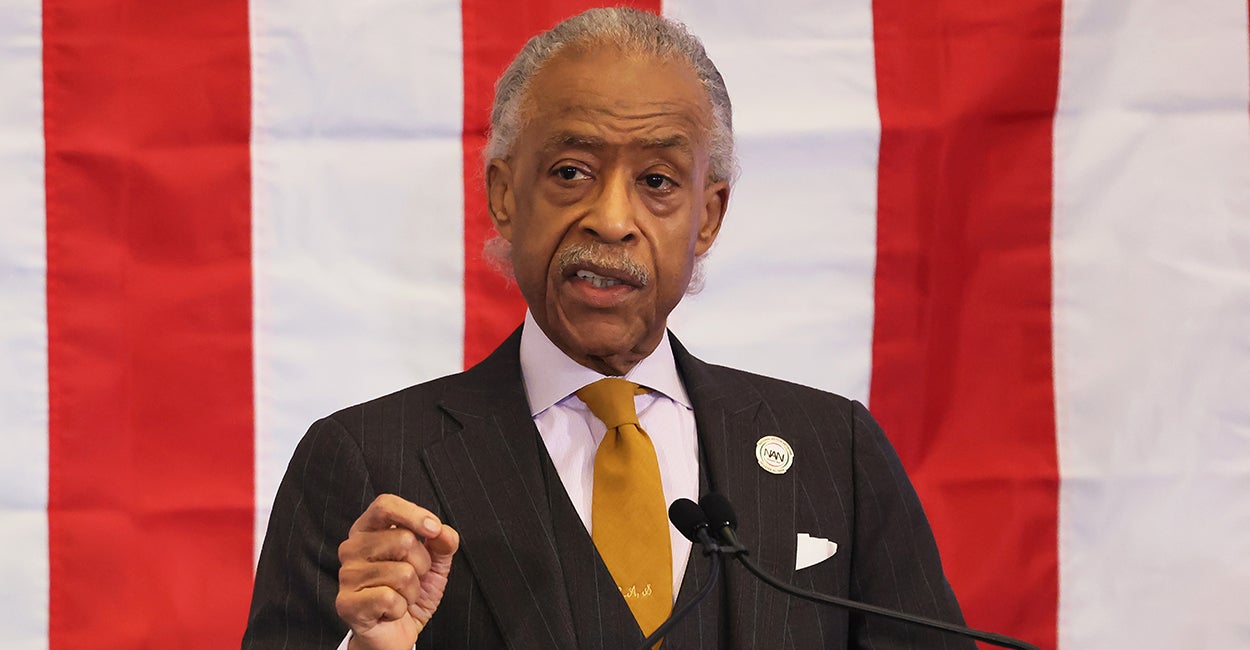A Major Constitutional Problem for Reparations
Liberal governments like those running California, New York, and Detroit are rolling out reparations proposals that treat Americans differently depending on their skin color. That’s... Read More The post A Major Constitutional Problem for Reparations appeared first on The Daily Signal.

Liberal governments like those running California, New York, and Detroit are rolling out reparations proposals that treat Americans differently depending on their skin color. That’s a constitutional problem.
The 14th Amendment says that governments cannot deny “any person” the “equal protection of the laws.” This means, as the Supreme Court says, that the law applies to everyone “without any differences of race, of color, or of nationality—it is universal in its application.”
The problem that equal protection poses for reparations is obvious: Reparations discriminate by race and make one group more “equal” than others.
To overcome this defect, reparations supporters argue that the Constitution doesn’t mean what it says. Although it seems to prohibit discrimination against “any person,” they argue that it prohibits only discrimination against black people. Discrimination against other people is constitutional, they say, if it helps black people.
This argument is wrong, but it has a ring of truth about it given that the Civil War was fought to free black slaves and that the 14th Amendment was ratified to give black Americans the full citizenship that had been denied to them.
But that’s only part of the historical picture.
A complete picture shows that the 14th Amendment was written to prohibit all race discrimination so that all individuals would be equally protected under the law. Its authors saw themselves as fulfilling the long-overdue promise of the Declaration of Independence that “all men are created equal.”
One of them, Rep. Thaddeus Stevens of Pennsylvania said that the Founders “had been compelled to postpone the principles of their great Declaration, and wait for their full establishment till a more propitious time” and “[t]hat time ought to be present now.”
Stevens, a Republican, was not alone in expressing that high ideal during the ratification process for the 14th Amendment and its related civil rights laws:
- Rep. John Bingham, a Republican from Ohio who was chief author of the 14th Amendment, hoped for the “absolute equality of all citizens before the law.”
- Rep. John Hale of New Hampshire looked forward to a nation that would “contend for no class, no condition, but for humanity.”
- Sen. Carl Schurz, a Missouri Republican and former Union Army general, envisioned a world where “liberty and the right of every citizen and every state would be a matter of national concern.”
- Rep. John Lynch of Mississippi, a former slave, hoped that “the law would know no race, no color, no religion, no nationality except to prevent distinctions on any of those grounds.”
- Finally, Sen. Charles Sumner of Massachusetts declared that there would be “no ruler drawing lines on the color basis which are always an indignity, an insult, [and] a wrong.”
Noble sentiments like these fill the congressional records. The authors weren’t focused just on black people, they were focused on all of humanity.
The theme that repeats throughout the records is that, as Stevens put it, a “law which operates on one man shall operate equally upon all.”
Modern advocates for reparations and “antiracist discrimination” reject legal equality. They apply the same discriminatory means that these statesmen rejected—categorizing people by their skin color and assigning them benefits and burdens on that basis—but somehow expect a different result.
They will, however, do the same thing that race-labeling has always done: Set one race above others and spark division and hatred at the injustice of it.
That’s exactly what happened when the country abandoned the 14th Amendment during the Jim Crow era. And it’s exactly what has been happening in recent years with diversity, equity, and inclusion and “antiracism.”
The good news is that we seem to be emerging from that fog.
In the case known as Students for Fair Admissions v. Harvard, the Supreme Court reaffirmed that “[e]liminating racial discrimination means eliminating all of it.” And in his concurring opinion, Justice Clarence Thomas reminded us that “[t]wo discriminatory wrongs cannot make a right.”
Meanwhile, lawmakers are turning against the illegal discrimination that DEI fosters, and Americans seem to have rejected it in the latest elections.
Enforcing equal protection as the Constitution envisions will not automatically end racial tensions or guarantee equal outcomes among racial groups. Promoting friendship, forgiveness, and freedom of opportunity is the great challenge of a diverse society. We can’t meet that challenge without a shared commitment to the principle of equal treatment under law.
The 14th Amendment provides it, if we will embrace it. And in providing that shared vision, it outlaws discriminatory reparations that only divide us by race.
The post A Major Constitutional Problem for Reparations appeared first on The Daily Signal.










